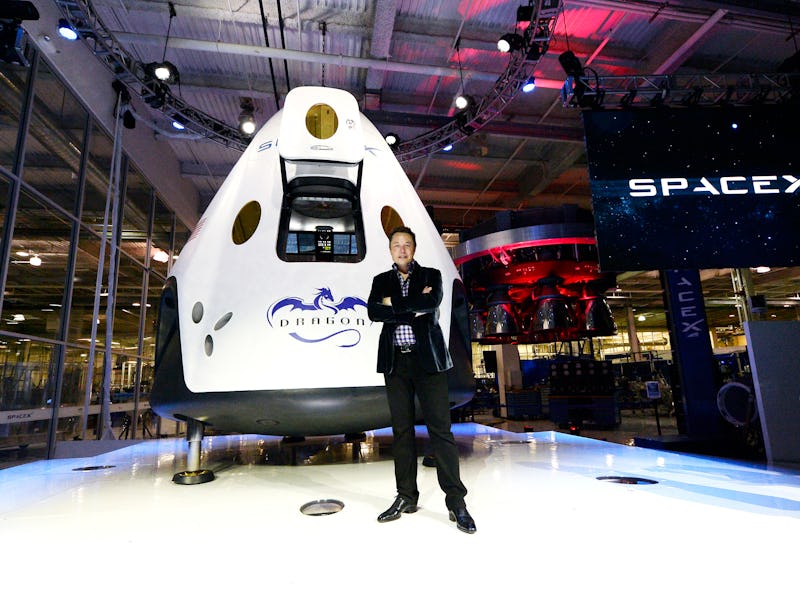Elon Musk's Simple, Effective Hype Strategy is Cryptic Teasers

SpaceX is not shy about spectacle. The company’s sincere goal of facilitating mass human travel to Mars has translated in an unprecedented openness of its activities — be they successful or not. Broadcasting launches, rocket landings (explosive or otherwise), and holding massive presentations about colonizing Mars are useful ways to create excitement. As a result, the company has arguably played a major role in the resurgence of public popularity and interest in space travel and exploration.
That also means the company has little trouble generating an extraordinary amount of buzz whenever it wants.
On Sunday, just before the start of the 89th Academy Awards — one of the few events where anybody with a Twitter account uses it — CEO Elon Musk tweeted that SpaceX would make an announcement Monday, and managed to put a little part of the internet into a frenzy with just 39 characters.
This is not news — it’s simply a precursor to actual news. But it’s all that was needed to make sure that come 4 p.m. EST, all eyes and ears around the world will shift their focus to Musk and SpaceX and eagerly await the news.
The single tweet is an illustration of the kind of clout Musk wields, by virtue of him being one of the world’s most exciting and compelling billionaires. He’s certainly not been as transformative for the world as others like Bill Gates or Mark Zuckerberg, but Musk wants to be that impactful for humanity. He’s effusive about turning SpaceX and electric car and energy company Tesla into the types of companies that will bring humanity into a 21stcentury centered around sustainability and adventure.
Update: SpaceX will send two private citizens around the moon in 2018.
These are already the kinds of things people are ready to get behind, but it’s uncommon for a company not named Apple to just hint at some new development to get people hyped out their minds about what will happen next. Just last year, SpaceX quietly added its name to the 67th International Aeronautical Congress in Guadalajara, Mexico a few months beforehand. Hype over what eventually turned out to be Musk’s plan for interplanetary transport reached a fever pitch in the weeks leading up to the late-September presentation.
The event was one of the most widely-discussed science and tech talks of the year for its ability to capture imaginations and Musk’s straight-forward, this-should-be-easy attitude about the whole enterprise. A company that regularly launches rockets into space just outlined a vision for getting to Mars. Of course people wanted to learn more.
And that brings the world to Monday, waiting to see (update: it’s the moon) what else Musk will share, despite providing almost no details. It was the same situation last October in the run-up to the Tesla-Solar City, or currently as people stand idly by to hear about the Neural lace Musk is working on.
Musk has found the perfect publicity strategy because he’s made sure the focus of his companies’ are in big, wild ideas. He doesn’t need to provide more information to keep us on the hook — just tidbits of information that we know are a part of those grandiose ideas.